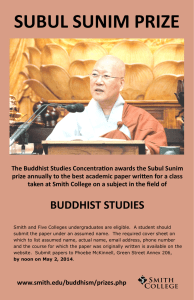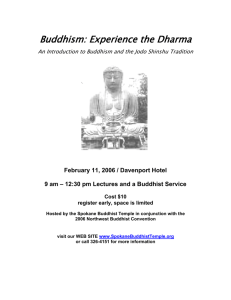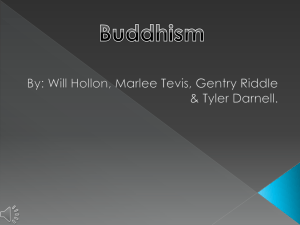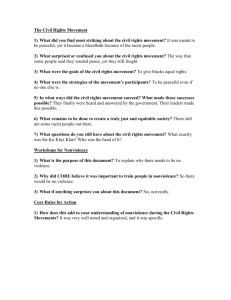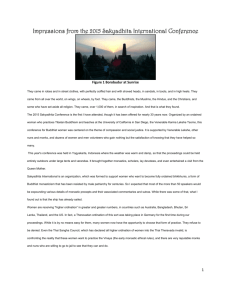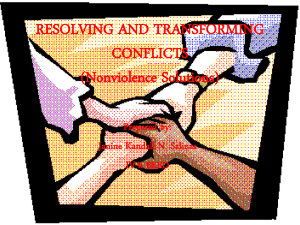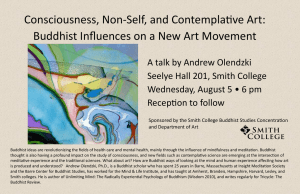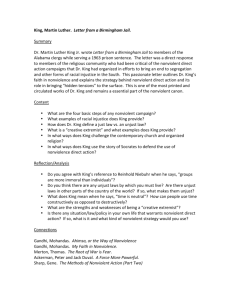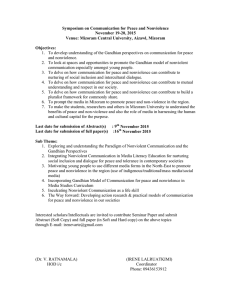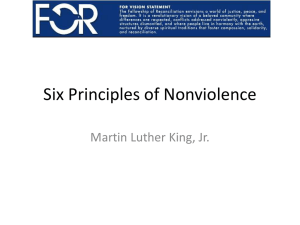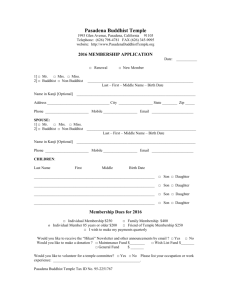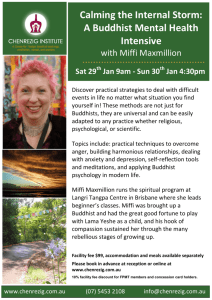File - Dongguk Summer School Buddhism and
advertisement
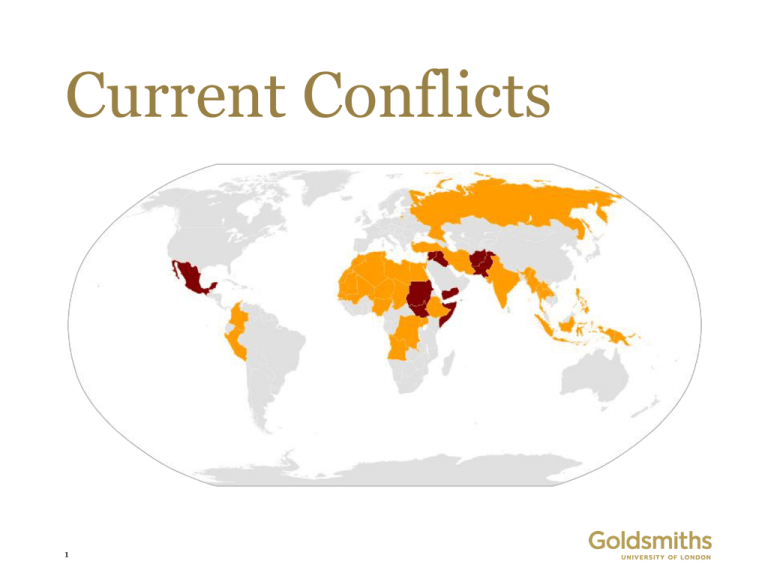
Current Conflicts 1 Terrorism Dhammapada – ‘All tremble at violence, all fear death. Comparing oneself with others one should neither kill nor cause to kill’ (v.129). 3 – ‘He who has renounced violence towards all living beings, weak or strong, who neither kills nor causes others to kill—him do I call a holy man’ (v.405). – ‘He abused me, he struck me, he overpowered me, he robbed me.’ Those who harbour such thoughts do not still their hatred (v.3). Ashoka – – – First Rock Inscription at Girnar 4 ‘Beloved-of-the-Gods, King Piyadasi, conquered the Kalingas eight years after his coronation. One hundred and fifty thousand were deported, one hundred thousand were killed and many more died (from other causes).’ ‘These misfortunes befall all (as a result of war), and this pains Beloved-of-the-Gods.’ Rock Edict 13 Nonviolence and Compassion – ‘I accept the prize with profound gratitude on behalf of the oppressed everywhere and for all those who struggle for freedom and work for world peace. I accept it as a tribute to the man who founded the modern tradition of nonviolent action for change - Mahatma Gandhi - whose life taught and inspired me.’ – ‘I believe the prize is a recognition of the true values of altruism, love, compassion and nonviolence which I try to practise, in accordance with the teachings of the Buddha and the great sages of India and Tibet.’ Nobel Peace Prize Acceptance Speech, 10 December 1989 5 Japanese Pacifists Ven. Nichidatsu Fujii, founder of the Nipponzan Myohoji 6 7 THE DALAI LAMA – – – – – – – 8 I am honoured to have been invited to address members of the Buddhist community serving in the Royal Navy, the British Army and the Royal Air Force on the occasion of your annual conference. I have always admired those who are prepared to act in the defense of others for their courage and determination. Naturally, there are some times when we need to take what on the surface appears to be harsh or tough action, but if our motivation is good our action is actually nonviolent in nature. The teachings of love, kindness and tolerance, the conduct of nonviolence as I have explained above, and especially the Buddhist theory that all things are relative are a source of that inner peace. It is my prayer that all of you may be able to do your duty and fulfill your mission and in due course when that is done to return to your homes and families. Extracts from message to the Armed Forces Buddhist Society 16 May, 2009 Buddhist chaplains 9 Recent studies of Buddhism at War 10 Satyakaparivarta – 2nd CE – Frequently cited, including by Nāgārjuna in the Sūtrasamuccaya – Allows – Torture – Harsh punishment – War (defensive/offensive?) – Religious war – All means of making merit 11 – Incremental escalation – Protect – Non-combatants – Social/economic infrastructure Takuan Sōhō Zenji (1573-1645) ‘The uplifted sword has no will of its own, it is all of emptiness. It is like a flash of lightning. The man who is about to be struck down is also of emptiness, as is the one who wields the sword […] Do not get your mind stopped with the sword you raise, forget about what you are doing, and strike the enemy.’ 12 The Yasukuni controversy – Class A war criminals enshrined in 1978 – Visits by Japanese PM to shrine – Protests by Chinese and Koreans – Dokdo Islands dispute 13 The Road to WW3? Tokyo – Patriot missiles 14 East China Sea – Senkaku Islands
